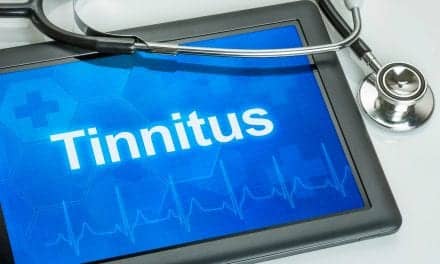At this time, it is not clear how the Act specifically applies to hearing healthcare practices.
US Senator Marco Rubio (R-FL) and Senator Ben Cardin (D-MD), Chairman and Ranking Member of the Senate Committee on Small Business and Entrepreneurship, along with Senator Susan Collins (R-ME), Chairman of the Senate Special Committee on Aging, and Senator Jeanne Shaheen (D-NH), a senior member of the Senate Committee on Small Business and Entrepreneurship, released the final bipartisan small business emergency economic relief plan that provides more than $377 billion for small businesses to meet their payroll and expenses, and receive education and assistance throughout the coronavirus pandemic. The Keeping American Workers Paid and Employed Act is Division A of the Coronavirus Aid, Relief, and Economic Security (CARES) Act. A statement announcing the plan was published on the Small Business website.
An updated section by section of the Keeping American Workers Paid and Employed Act can can be found here and one pager can be found here.
“The unprecedented crisis facing our nation’s small businesses and their employees requires an immediate, bold response,” Rubio said. “I am confident that we have assembled a bipartisan emergency relief package that will get cash to small businesses, and the Americans they employ, that desperately need it during this pandemic. I appreciate the work that we were able to accomplish in a bipartisan fashion with Ranking Member Cardin, as well as Senators Collins and Shaheen. I look forward to the swift passage of the CARES Act in the Senate, and urge the House to take it up immediately in order to get it to the President for signature.”
“American small businesses are facing an existential threat. The unprecedented public health measures cities and states have taken to slow the spread of the COVID-19, while necessary to protect public health, are having a tremendous impact on small businesses in every community in America,” Cardin said. “Congress has a duty to ensure that America’s 30 million small businesses, and the 60 million people they employ, are not forced to bear the financial costs of keeping our communities safe on their own. I am grateful that Chairman Rubio, Senators Collins, and Shaheen, and I were able to reach a bipartisan agreement to include $377 billion in support for small businesses in the stimulus.”
“Every day, I am hearing from small business owners who are anxious about the future of their businesses and how they can continue to pay their employees. The last thing they want to do is to lay off their employees, but they fear they may have no choice. When these businesses suffer, it has a cascading effect on workers, from housekeepers, to wait staff, to bartenders, to fishermen to drivers, to retail clerks,” Collins said. “Help is on the horizon that would allow them to weather the current storm. As members of the Small Business Task Force, Senators Rubio, Cardin, Shaheen, and I worked day and night on this bipartisan $377 billion small business economic relief plan. It is past time that we deliver this urgently needed aid for the employees of small businesses across our nation and get the job done for the American people.”
“Over the last week, I’ve kept in close contact with New Hampshire’s businesses who are reeling from this crisis—these conversations were invaluable as I helped negotiate this vital legislation to aid our small businesses,” Shaheen said. “New Hampshire’s small businesses owners are lying awake at night worried about whether they can stay afloat and keep their employees on payroll. This moment of crisis demands that Congress take bold action to help these entrepreneurs and their workers. To New Hampshire and the nation’s small businesses, I want to make it clear: help is on the way. While we did not always agree and there are certainly measures I wish we could have included, this agreement is a product of good faith bipartisan negotiations and will provide real relief. I want to sincerely thank my partners, Senators Rubio, Cardin, and Collins, for their constructive approach throughout this process. Small businesses are fundamental to New Hampshire’s economy and this assistance can’t come quickly enough. Let’s get this assistance across the finish line and continue to work in a bipartisan way to rescue our economy, prioritizing the financial security of our working families and small business entrepreneurs. More legislation will certainly be necessary going forward.”
The Keeping American Workers Paid and Employed Act:
- Creates the Paycheck Protection Program, a nearly $350 billion program to provide eight weeks of cash-flow assistance to small businesses through 100% federally guaranteed loans to employers who maintain their payroll during this emergency. If employers maintain their payroll, the loans would be forgiven, which would help workers to remain employed and affected small businesses and our economy to quickly snap back after the crisis.
- Allows the Paycheck Protection Program to cover payroll costs, paid sick leave, supply chain disruptions, employee salaries, health insurance premiums, mortgage payments, and other debt obligations to provide immediate access to capital for small businesses who have been impacted by COVID-19.
- Provides $265 million for grants to offer counseling, training, and related assistance to small businesses affected by COVID-19 to SBA resource partners, including Small Business Development Centers and Women’s Business Centers and $10 million for the Minority Business Development Agency’s Minority Business Centers and Minority Chambers of Commerce.
- Allows for expedited access to capital by establishing a $10 billion program for small businesses who have applied for an EIDL loan to request an advance of up to $10,000 on the loan to provide paid sick leave to employees, maintaining payroll, and other debt obligations.
- Requires SBA to pay all principal, interest and fees on all new and existing SBA loan products including 7(a), Community Advantage, 504, and Microloan programs for 6 months, and provides $17 billion for this purpose.
Source: Senate Committee on Small Business and Entrepreneurship





